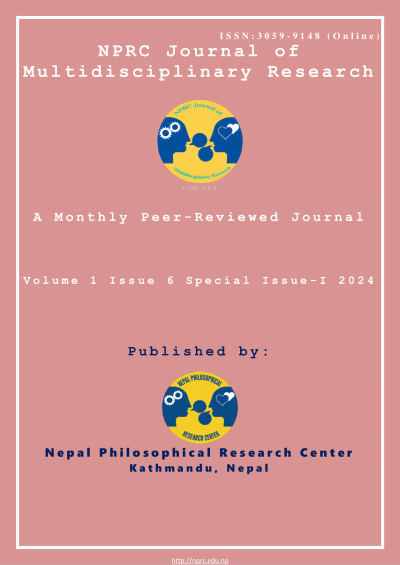Employee Perceptions of Job Demands, Autonomy, and Organizational Support: A Study on Workplace Stress and Satisfaction
DOI:
https://doi.org/10.3126/nprcjmr.v1i6.71750Keywords:
Workplace Demands, Job Autonomy, Organizational Support, Employee Stress, Job Satisfaction, Perceptions of Favoritism, Health Benefits, TrainingAbstract
Background: Employee well-being has become a key determinant of organizational performance, with demands, autonomy, and support identified as major contributors to workplace satisfaction and mental health.
Objective: The study aims to investigate the extent to which employees perceive their work as demanding, requiring significant skills, and allowing autonomy, as well as how these factors impact feelings of favoritism, stress, and workplace support, including health benefits and training.
Methods: Data were collected through a structured survey administered to 89 respondents, utilizing Likert-scale questions to assess opinions on job demands, autonomy, favoritism, stress levels, information sufficiency, and consistency in job roles. Descriptive statistics, primarily frequency and percentage distributions, were employed to analyze participant responses.
Findings: The results indicate a mixed response to job demands, with a notable portion of employees agreeing that their work is effort-intensive and skill-demanding. Despite these demands, only moderate levels of autonomy were reported, as many participants indicated limited choice in determining their work processes. Favoritism and bullying perceptions were low overall, but stress was reported to impact performance for a considerable segment of employees. Health and training support appeared somewhat limited, with only a portion of employees confirming regular access to these resources.
Conclusion: Findings suggest a critical need for organizations to balance job demands with adequate autonomy and support, as these factors significantly affect employee well-being and productivity.
Novelty: This study uniquely combines various workplace dimensions—demands, autonomy, favoritism, stress, and support structures—into a single analysis, providing a holistic view of factors influencing employee satisfaction and stress.
Downloads
Downloads
Published
How to Cite
Issue
Section
License
Copyright (c) 2024 The Author(s)

This work is licensed under a Creative Commons Attribution-NonCommercial 4.0 International License.
This license enables reusers to distribute, remix, adapt, and build upon the material in any medium or format for noncommercial purposes only, and only so long as attribution is given to the creator.





